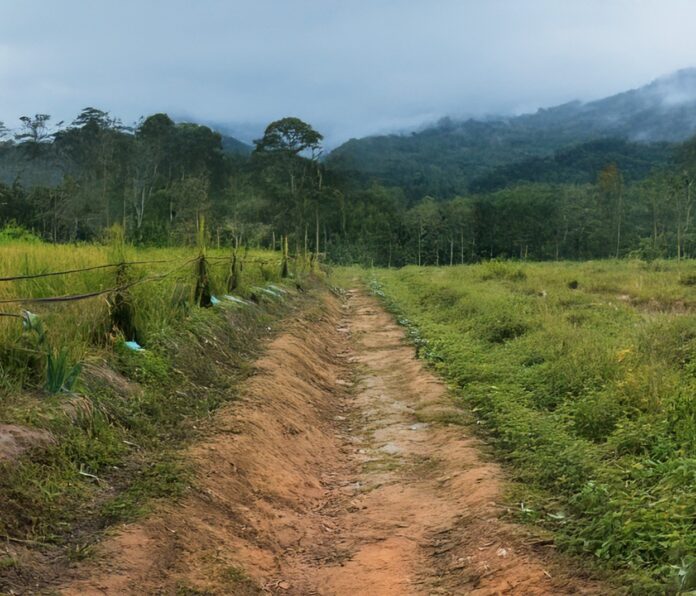Monrovia, Liberia; September 3, 2025 — As global efforts intensify to close the estimated $700 billion biodiversity financing gap, Liberia has reached a major milestone in its journey toward sustainable biodiversity funding.
The country has successfully validated its Policy and Institutional Review (PIR)—a foundational step in developing its forthcoming National Biodiversity Finance Plan (BFP).
This validated PIR serves as a strategic policy document that will guide biodiversity financing in Liberia over the medium to long term. Supported by funding from the Global Environment Facility (GEF), the United Nations Development Programme (UNDP) Liberia is assisting the Government of Liberia in implementing the Biodiversity Finance Initiative (BIOFIN) Project.
Valued at $314 million over three years (2025–2027), the project aims to integrate biodiversity finance planning into Liberia’s Medium-Term Expenditure Framework (MTEF).
A key milestone in this process was the validation of the PIR during a one-day workshop held in Kakata, Margibi County, under the theme “Policy and Institutional Review (PIR) Validation and Introduction of Biodiversity Expenditures Review Methodology.”
The workshop convened stakeholders from biodiversity-relevant institutions, including the Ministries of Finance and Development Planning, Mines and Energy, Agriculture, the Environmental Protection Agency (EPA), Forestry Development Authority (FDA) ArcelorMittal Liberia, academic institutions, and civil society organizations.
Emmanuel Massaquoi, Project Manager for Sustainable Finance at UNDP Liberia, underscored the importance of stakeholder engagement. “I know there are competing schedules that you have, but you left it because this is also a national issue. We have been fighting to protect our biodiversity. We do not have funds. We are creating a document that will help us source funds from different areas, so you people are very important in this exercise we are undertaking here today.”
The 117-page PIR report, developed with support from GEF through UNDP, provides a baseline analysis of Liberia’s biodiversity finance landscape. It reviews biodiversity-related policies, institutions, and stakeholders, and sets the stage for the next phases of the BFP, which include the Biodiversity Expenditure Review (BER) and the Financial Needs Assessment (FNA).
These assessments will evaluate past and current biodiversity-related spending and estimate the financial resources required to achieve Liberia’s biodiversity goals.
Ultimately, the BFP will propose financing solutions to close Liberia’s biodiversity finance gap by optimizing existing investments and identifying new funding sources—public, private, and international.
Austine Togba, Research Analyst at the Ministry of Finance, speaking on behalf of Foday Bayoh, Coordinator of the Climate Integration and Financing Office, described the PIR as a strategic tool to unlock biodiversity funding.
“The Ministry of Finance recognizes that our national prosperity is linked to the health of our ecosystem. Biodiversity is not just an environmental concern; it is the fundamental pillar of our agriculture, fishery, tourism, and overall resilience.”
Togba also highlighted the importance of innovative financing mechanisms such as blue and green bonds, natural capital accounting, and public-private partnerships to support conservation efforts.
“Our commitment is to use the PIR to inform the next crucial phase of the BIOFIN process. We will work closely with the EPA, FDA, and all relevant ministries and agencies to ensure that the biodiversity finance plan is practical, cost-effective, and fully integrated into national development and budgetary frameworks.”
The PIR also contributes to Liberia’s broader effort to revise its National Biodiversity Strategy and Action Plan (NBSAP), a requirement under the United Nations Convention on Biological Diversity (CBD).
Jerry Yonmah, Technical Manager of the Conservation Department at the FDA, expressed optimism about the PIR’s potential. “This document is a tool that will enhance our ability to protect Liberia’s forests, endangered species, and ecosystems.”
Liberia’s current NBSAP, adopted in 2017, expires in 2025. The updated version will align with the Global Biodiversity Framework (GBF) and incorporate findings from the BFP to address identified financing gaps.
Key objectives of the PIR include assessing national biodiversity and sustainable development strategies, analyzing economic linkages and existing finance mechanisms, evaluating institutional arrangements and incentives for biodiversity management, reviewing trends and drivers of biodiversity loss, and aligning biodiversity efforts with global (SDGs), regional (Africa 2063), and sub-regional (ECOWAP) goals.
Cllr. Urias Goll, the lead consultant, presented the PIR and outlined its objectives. Following the presentation, participants engaged in technical working group sessions, providing inputs and recommendations that were incorporated into the final document, marking its official validation.
In closing, representatives from various institutions thanked UNDP Liberia for its leadership and pledged continued support to translate the validated PIR into actionable steps for mobilizing financial resources to protect Liberia’s biodiversity.
Liberia joined the BIOFIN Initiative in 2024, becoming one of 91 new countries participating in the global UNDP-led program. Since its launch in 2012, BIOFIN has helped 42 countries raise over $1.6 billion through innovative financial mechanisms to support biodiversity conservation. With the PIR now validated, Liberia is well-positioned to advance its biodiversity finance planning and ensure long-term sustainability for its rich natural heritage.



